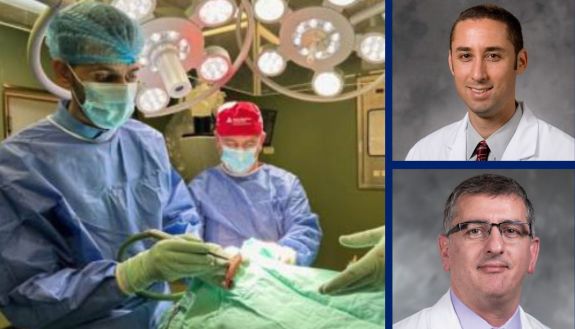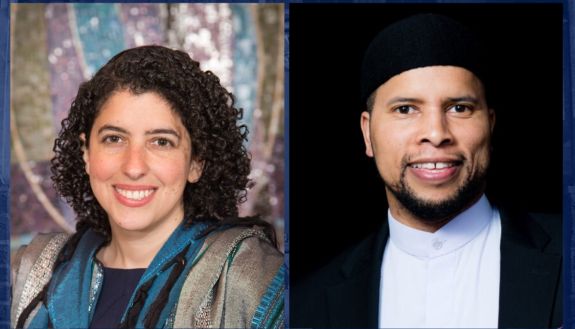Where Small Steps Make a Difference in Middle East Crisis
Speakers at Provost Forum on Middle East share ideas on student safety, free expression
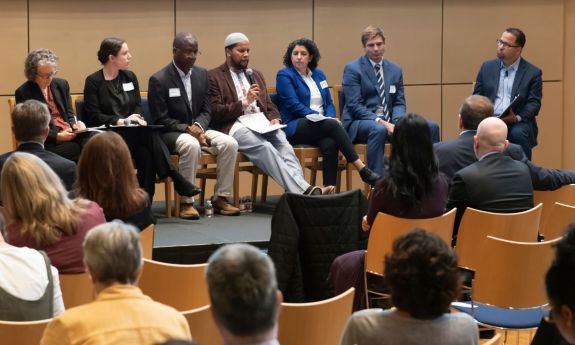
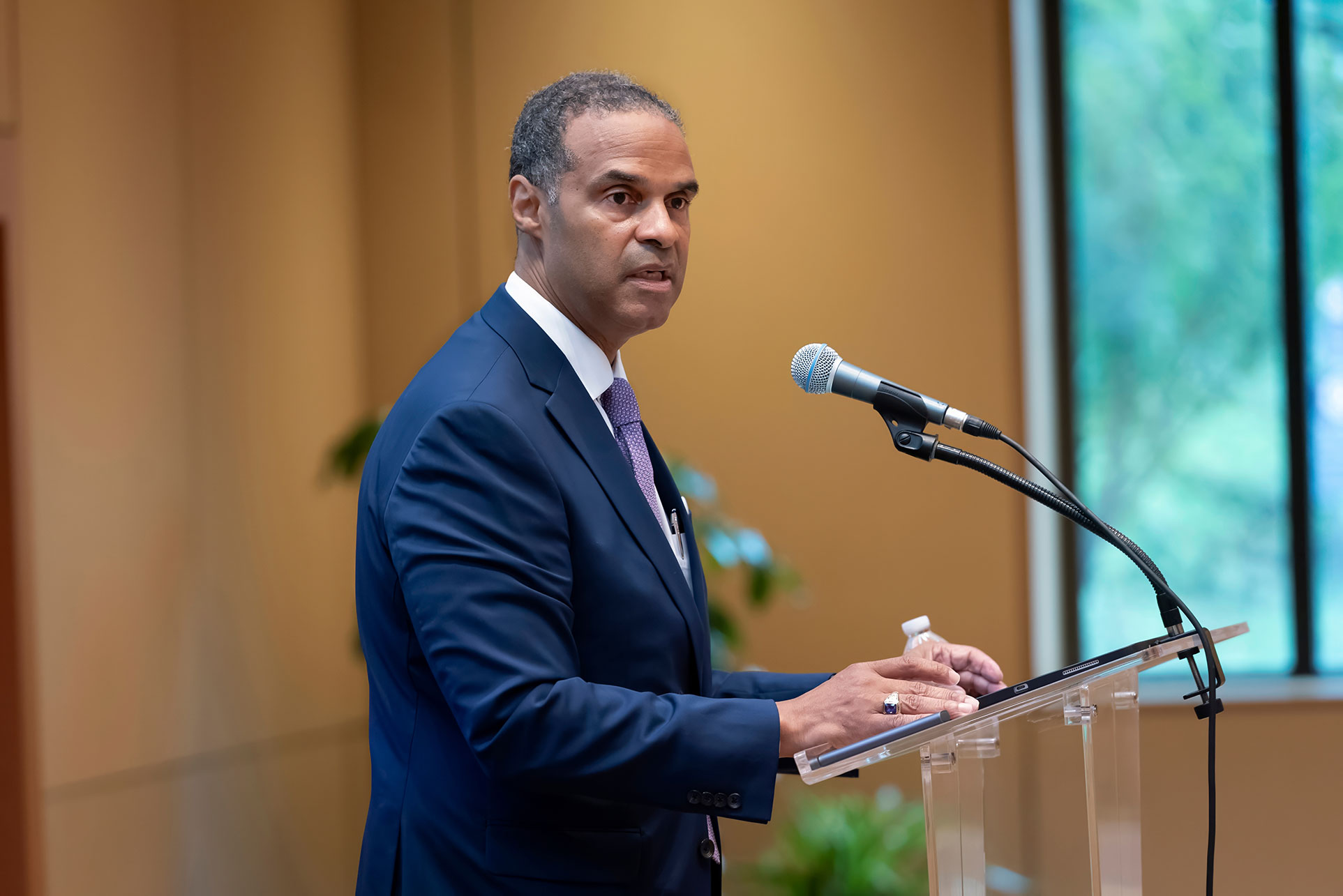
But amid the large issues driving the conflict and the deep passions it invokes, each panel presented examples of change and hope, driven by the determination of a few people. In the words of Pratt School junior Pranav Mukund, a leader in a student effort to bring educational materials to Gaza youths: “You don’t have to be part of a government or an NGO. We all don’t have to be experts -- I'm clearly not -- but you just need to take small steps and perform little actions. If we all do that collectively we will have the momentum and power to make great change here.”
The forum is part of a larger university effort make space in the Duke community for dialogue and engagement that welcomes different perspectives. Nine Bass Connections teams, in conjunction with the Provost’s Initiative on the Middle East, are exploring critical issues in the conflict, from humanitarian assistance and psychological impacts to strategies for peacebuilding. Students and faculty from nearly every school are engaged in scholarship on the region.
“Not since the late 1960s have universities experienced such polarizing conflict,” Provost Alec D. Gallimore said. “The challenge of having difficult conversations is a barrier to learning more. We’ve strived to keep the community safe while maintaining free expression.”
Here are selected highlights from the Provost’s Forum, held Monday in Karsh Alumni & Visitors Center.
Keynote Address by Robert Pape
A leading scholar of political violence said steps taken now by universities while campuses are quiet will go a long way to protecting student safety and ensuring free expression if tensions arise again.
The most important step was to directly address misperceptions about the conflict, said Robert Pape, director of the Chicago Project on Security and Threats.
Pape presented data that confirmed the high levels of fear by both Jewish and Muslim students, often driven by political chants and inflammatory rhetoric. But his research shows there is also significant misperception about the meaning of one frequently used phrase, “from the river to the sea, Palestine will be free.”
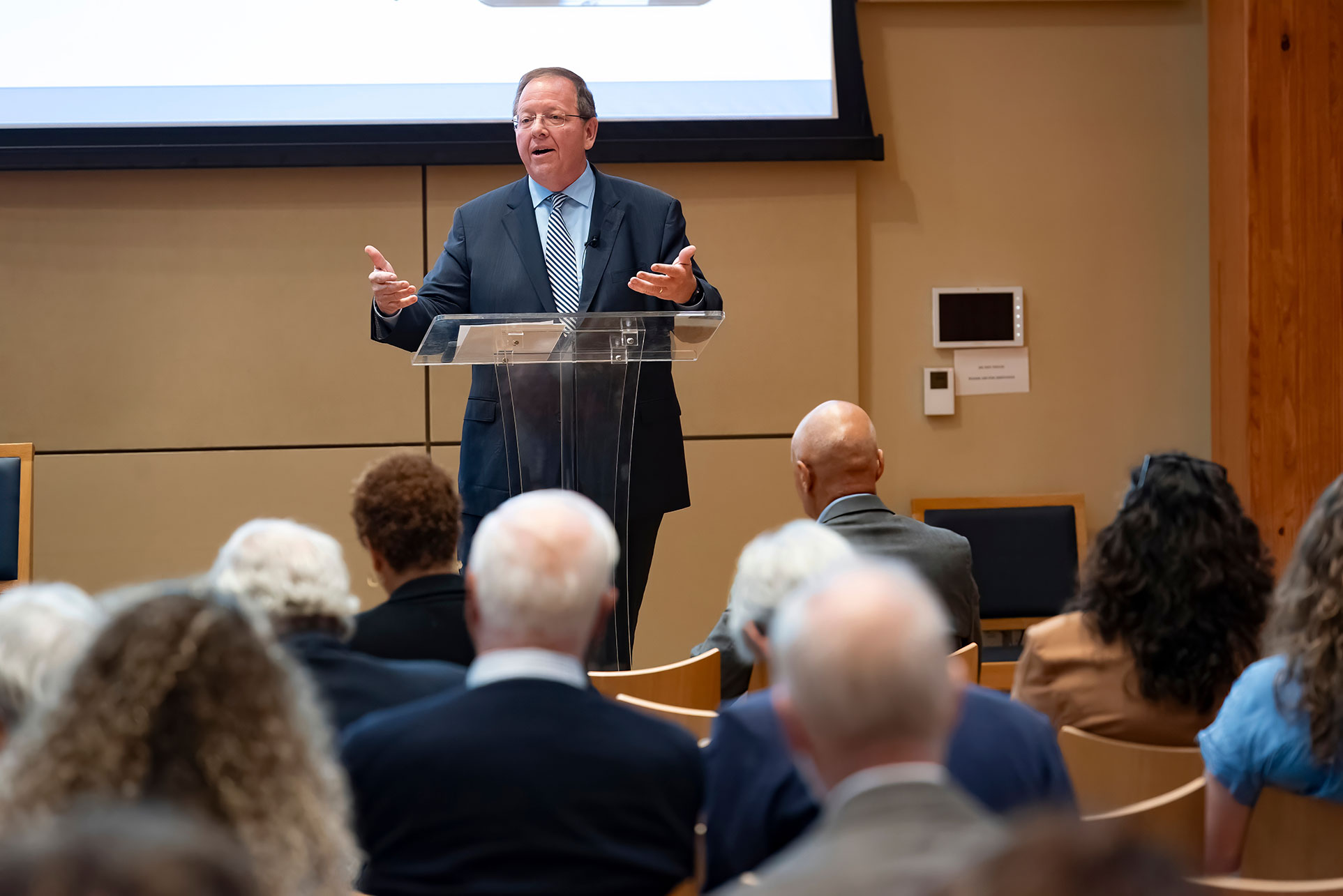
“We found a tragic misunderstanding driving to some part of student fears, but this is something we can do something about,” he said. “Sixty-six percent of Jewish students understand the phrase as a call for genocide and 62% of those reported feeling afraid, but only 14% of Muslim students report understanding the chant in this manner. This means that different perceptions of intent are playing a role in the campus fears.”
He recommended four steps for campus leaders:
* Widely publicize calming statements before threats levels of campus violence rise.
* Inform future speech, not hastily restrict speech, including statements that can avoid misunderstandings and clarify the consequences of inflammatory rhetoric and calls for mass harm.
* Clarify campus rules and practices on protests and political expression.
* Recognize the Chicago Principles, an articulation of support for free expression and institutional neutrality created by his University of Chicago a decade ago.
“The number one prism should be to diminish harm and fears of our students,” Pape said.
Promoting Constructive Dialogue on Campus
During a panel about the need for constructive dialogue, a group of Duke scholars and campus leaders stressed the importance of listening – not just talking – while also acknowledging the difficulty of maintaining calm at such a tumultuous time.
“One of the things Jewish tradition teaches is the idea of disagreement,” said Rabbi Elana Friedman, of Jewish Life at Duke. “We are a learning people. That means we really need to be critical thinkers. We need to take each idea and turn it over and over again. And not take anything at face value. That is a huge principle of Jewish thought.”
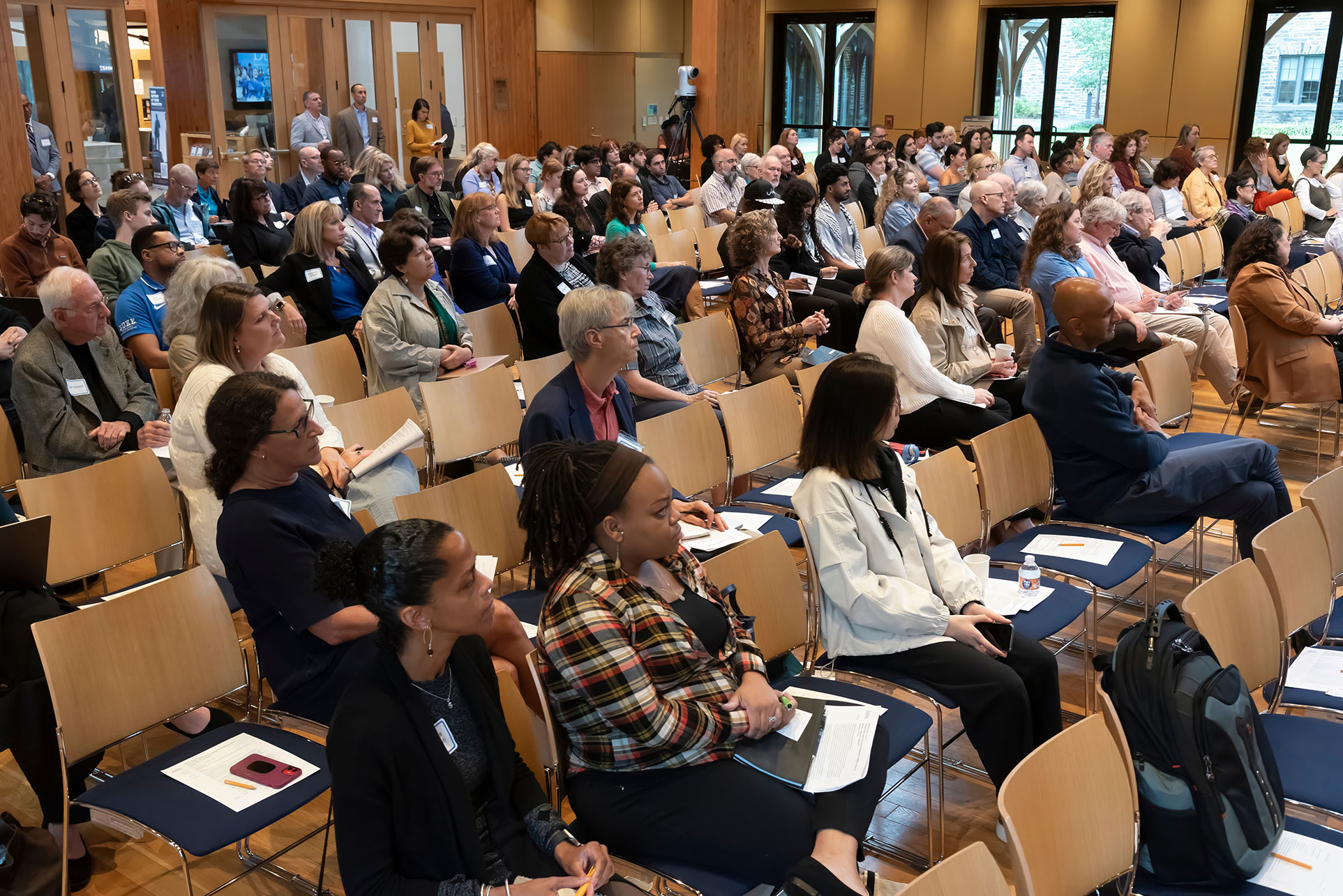
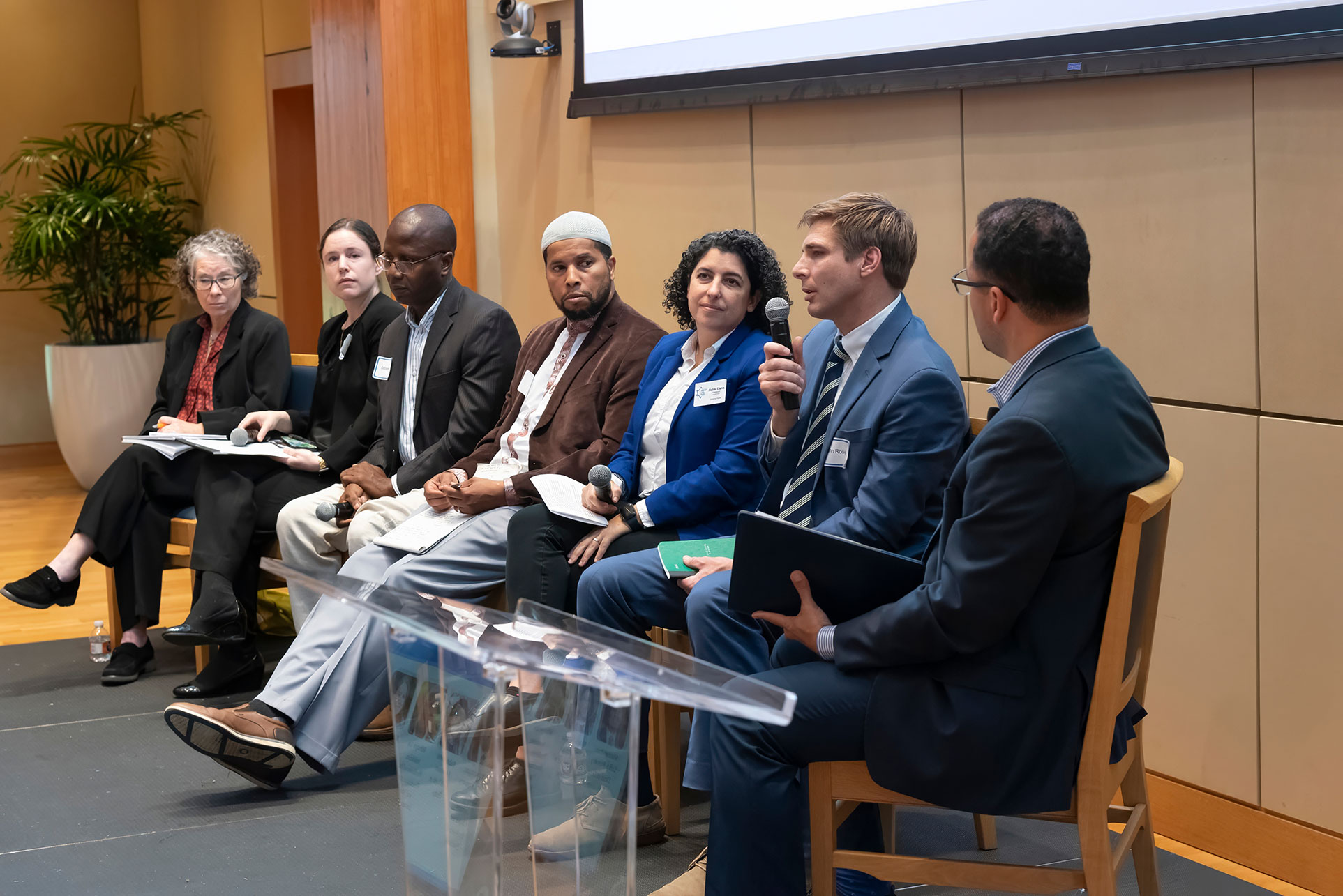
Other highlights from the panel:
Chaplain Joshua Salaam, program director for Duke’s Center for Muslim Life, on the importance of constructive discourse: “In general, the fighting starts when people no longer have the skills to talk. Building your muscle to communicate and talk things out is crucial.”
Environmental Diplomacy Role in The Peacebuilding Process In Israel and Palestine
The next event in the Provost’s Initiative on the Middle East will take a look at the environmental consequences of the conflict and how climate change and environmental stress is affecting the region.
Dr. Tareq Abu Hamed, executive director of the Arava Institute for Environmental Studies, will be the featured speaker.
The event will be held at 4:30 p.m. Wednesday, Sept. 18, in Field Auditorium in Grainger Hall.
John Rose, visiting professor in the Sanford School of Public Policy, on creating a safe and productive environment for difficult conversations: “If it’s a live question in our country that divides a lot of people of sound mind, it’s a live question in my class. These conversations are happening in the country. I want them to happen in my classroom. Lincoln debated Douglas about the expansion of slavery into the free territories. Why? He had to. The country was still divided about that. We still need to debate abortion and Israel/Gaza and all these other issues because they continue to divide us.”
Luke Powery, dean of Duke University Chapel, on the value of humility: “We don’t know everything, or else there would be no need for laboratories, research grants, critical questions or even panel discussions. We always have more to learn and more to discover, which is a sign of intellectual humility.”
Mbaye Lo, associate professor of the practice of Asian and Middle Eastern Studies, on the role of universities: “A university should be a neutral space where a community of scholars … come together for the sole protection of individual liberty. Without it, you won’t be able to carry on the functions of the university.”
Duke Projects Serving Israelis and Palestinians
The conflict in Israel and Gaza has also inspired humanitarian action from the Duke community. Four panelists described their work in the region, from health care to providing educational materials to Gaza children with no access to schools.
Two Duke doctors, David Hasan and Seth Cohen, said they were determined to provide care to people in the region once the war and humanitarian crisis began.
“Where I was in Israel, the doctors were providing compassionate care for Jews, Muslims and Christians,” said Cohen. “I was one of three Jewish people on a health care team along with two Muslim women; the only thing we cared about was the patient in front of us. Every hospital director that we met with said on October 7th they called a meeting and said what happens outside these halls doesn't enter inside the hospital. This is an important lesson of resilience there's no enemies in medicine.”
Since then, the two have connected at Duke. They have their differences on the war but believe those differences can be bridged.
“I tell people to don’t get sucked into the rhetoric,” Cohen said. “Listen to others. I reached out to David. We have our different approaches but over a cup of coffee we can find something in common.”
Hasan has spearheaded an international effort to bring medical equipment and hospital supplies into a Gaza health system that has collapsed during the war. Having no previous experience in organizing a relief effort, he reached out to groups in America, Europe, North Africa as well as Israel to bring 25,000 pounds of baby formula and 100,000 pounds of regular food into Gaza as well as needed neonatal incubators, dialysis machines and medication into Gazan health care centers.
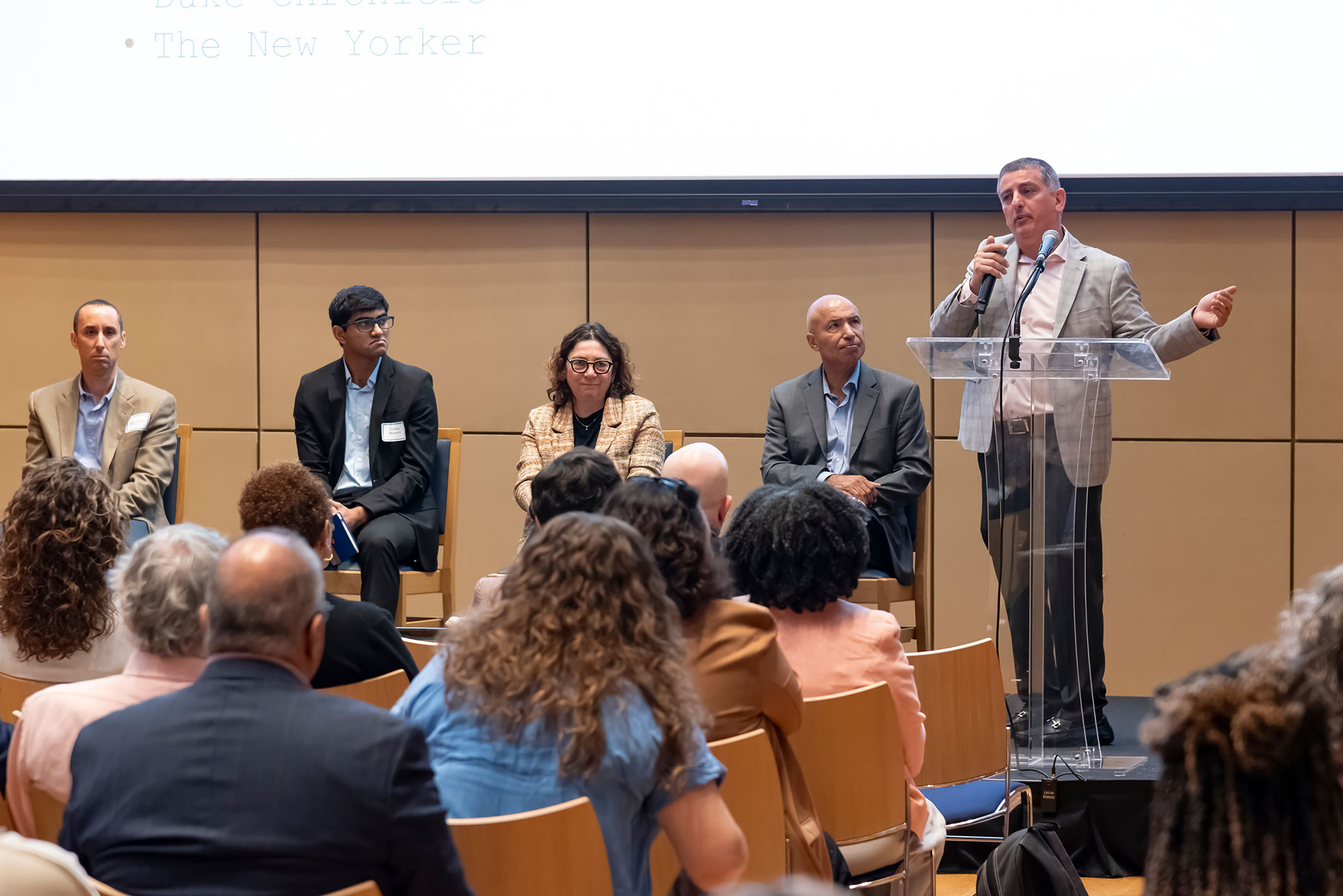
“It's a collapsed system,” Hasan said. “There's literally nothing there [at many hospitals]. If you have heart disease or cancer no one could look at you, no one could treat you.
“I don’t talk about politics there. I talk about humanitarian needs. People warned me that I couldn’t talk to the Israelis but I refuse to have to think about that. After I talked with (Israeli newspaper) Haaretz, literally after that I received thousands of emails from Israelis saying that they want to help. It would have been easy for me to stay in my own camp and be comfortable with my own people and not talk to the other side, but it would be a missed opportunity. If you just allow yourself to explore these opportunities, doors open.”
Erika Weinthal, John O. Blackburn Distinguished Professor for Environmental Science and Policy, spoke about connecting students to an NGO, Clean Shelter, which is providing shelter, clean water and other basic services for internally displaced Palestinians: “This isn’t us at Duke leading with our ideas about what will work in Gaza. This is us working with Clean Shelter and Gazans on projects they have come up with on a range of needs they have.
“Duke students bring knowledge to these projects but also bring empathy. There’s space for students who want to translate what they are seeing in the outside world into something that is practical. They know how to design toilets, how to think about sustainability, but this helps them learn the challenge of working in a humanitarian crisis.”
Pranav Mukund,a Pratt School junior, shared stories of a student-led project bringing educational resources to Gaza youths. He’s also in a Pratt class designing and building a toy for Palestinian children that can also serve as a source of energy.
“We’re building a prototype in our Engineering 101 course. We’re aiming for these to be small and handheld so they can be taken into Gaza” he said. “Most Gazans have little access to power, so the idea was we could create a toy that could generate electricity while kids are playing with it. Using energy to create energy.”
RELATED STORIES
